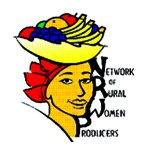The Network of Rural Women Producers Trinidad and Tobago (NRWPTT) is a member society of the Associated Country Women of the World (ACWW). ACWW is one of the largest international organizations for rural and farming women with over 460 societies in more than 70 countries. One of our objectives is to raise the standard of living for rural women and families through education, training and community development programmes.
ACWW has been an NGO with special consultative status with the UN Economic and Social Council (ECOSOC) since 1947.
We wish to bring to your attention that during our 2013 International Triennial Conference in Chennai, India the following resolutions and recommendations were passed:
Note: Two of our members attended this Conference
2013 ACWW RESOLUTIONS
Stop Violence against Women and Girls
ACWW urges all member societies to focus strongly on the situation of girls and women who are victims of different forms of violence.
ACWW has consultative status with several different UN bodies and close ties with the UN system through its representatives at UN Centre’s. Grounded in the vision of equality enshrined in the UN Charter, UN Women, among other issues, works for the elimination of discrimination against girls and women. The Network of Rural Women Producers, Trinidad and Tobago; strongly encourages ACWW to influence the UN to work globally towards a world without violence against girls and women.
All forms of violence against girls and women are violations of the most fundamental human rights.
In the Platform for Action (1995), the core document of the Beijing Conference, Governments declared
Violence against women constitutes a violation of basic human rights and is an obstacle to the achievement of the objectives of equality, development and peace.
Violence affects the lives of millions of women worldwide, in all socio-economic and educational classes. It cuts across cultural and religious barriers and is impeding the right of women to participate fully in society. Violence against women takes a dismaying variety of forms, from domestic abuse and rape to child marriages and female circumcision. Violence against girls and women is often used as a weapon during wars, and wars often happen in rural areas, rural females are particularly targeted as Stop Violence against Women and Girls.
ACWW urges all member societies and our Government of Trinidad and Tobago to focus strongly on the situation of girls and women are victims of different forms of violence
ACWW has consultative status with several different UN bodies and close ties with the UN.
In the Platform for Action (1995), the core document of the Beijing Conference, Governments declared:
Violence against women constitutes a violation of basic human rights and is an obstacle to the achievement of the objectives of equality,development and peace.
Violence affects the lives of millions of women worldwide, in all socio-economic and educational classes. It cuts across cultural and religious barriers and is impeding the right of women to participate fully in society. Violence against women takes a dismaying variety of forms, from domestic abuse and rape to child marriages and female circumcision. Violence against girls and women is often used as a weapon during wars, and war so often happen in rural areas, rural females are particularly targeted as a tactic of war. Young girls are sexually and physically abused and in most cases made into combatants, “wives” or “camp slaves”.
Gender equality and the empowerment of women are gaining ground worldwide. More girls are going to school and are growing up healthier and better equipped to realize their potential. Despite this, momentum, there is a long way to go before women and girls can be said to enjoy the fundamental rights, freedom and dignity that are their birth right and that will guarantee their well-being.
Men and boys must be encouraged to be leaders against this discrimination, as they also benefit when girls and women are free and equal.
Maternal Health
Be it resolved that ACWW Member Societies urge their governments to provide a well-trained and resourced quality maternity health service and to improve maternal health education for all women and girls to ensure the best outcomes for mother and baby, giving particular regard to the special needs and isolation of rural women.
Pregnancy and childbirth are among the leading causes of death and disability in developing countries, with at least 358,000 women and girls dying every year. The lack of essential maternal health services and maternal health education contributes to the high level of neonatal morbidity and maternal death, disease and disability. The majority of maternal deaths and injuries are avoidable when women have access to health care before, during and after childbirth.
This resolution seeks to support the Millennium Development Goals 4 (Reduce
child mortality) and 5 (Improve maternal health)
2013 ACWW RECOMMENDATIONS
E-Waste Recycling & Disposal
Due to ongoing technological advancement, many electronic products become obsolete within a very short period of time, creating a large surplus of unwanted electronic products, or ‘e-waste’.
E-waste contains a very large amount of lead and other heavy metals that are a threat to the environment, water resources, and health. Lead is a known neurotoxin, which can cause infertility, birth defects, brain damage and even death. The lead and heavy metal content in e-waste makes it difficult to recycle and as a result many companies ship it to undeveloped nations or throw it directly into land fill.
The United Nations Division for Sustainable Development has many major agreements and conventions covering e-waste. ACWW member societies can urge their governments to take immediate preventative and remedial action and member societies can make a study of, and call attention of their governments to, the importance of prohibiting the disposal of e-waste in landfills. ACWW member societies can be advocates for undeveloped countries to ensure that e-waste is not indiscriminately disposed of in those countries. ACWW member societies can also carry out practical action programmes to educate and encourage consumers in the safe and responsible disposal and recycling of electronic and e-waste.

